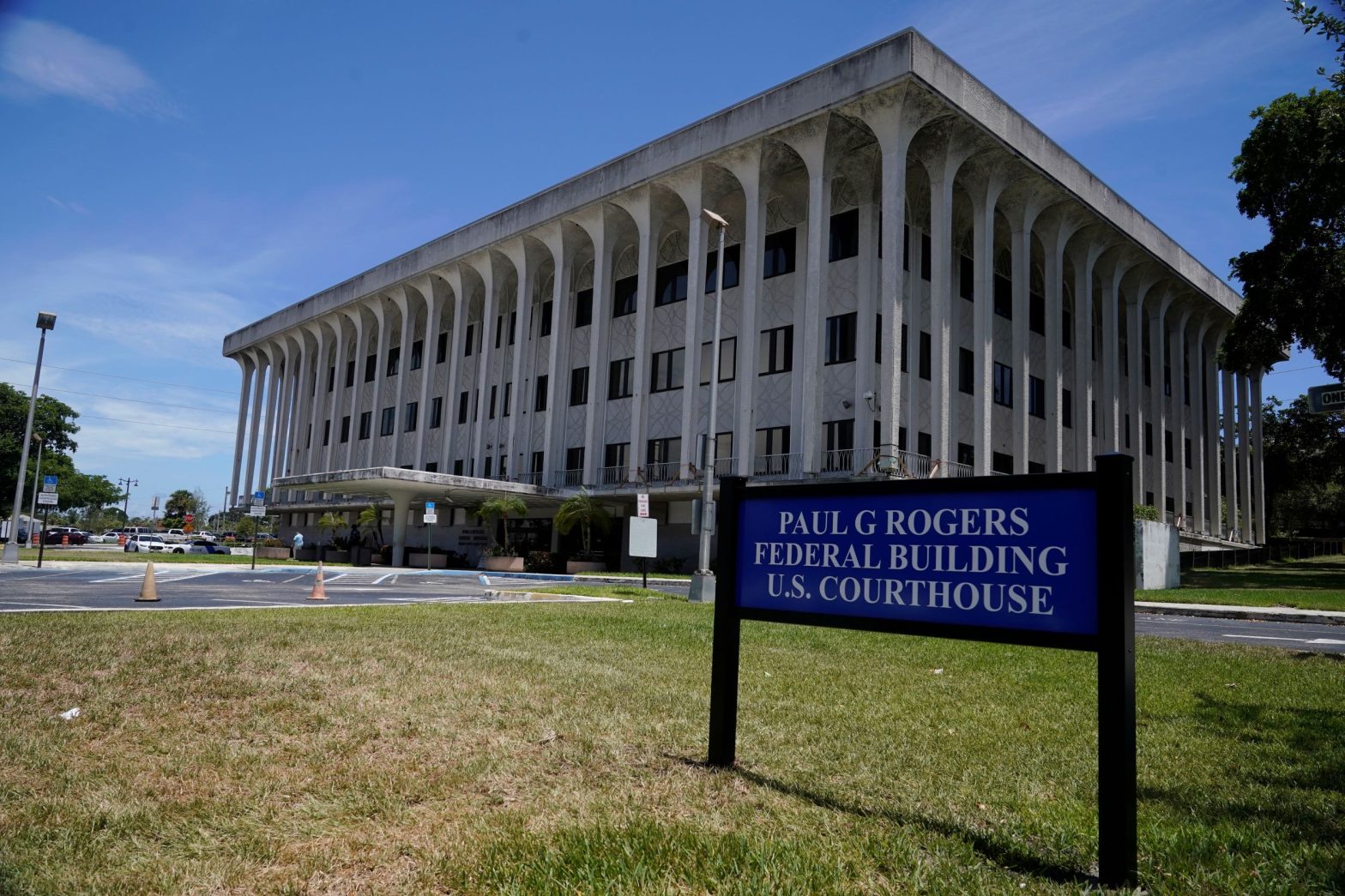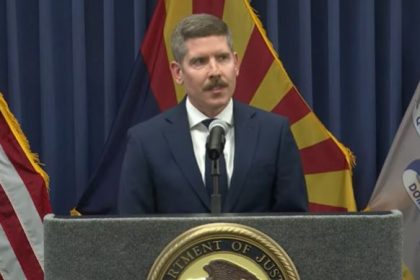DOJ Asks Judge to Keep Trump Search Affidavit Under Seal

WASHINGTON — The Justice Department on Monday asked a federal judge to keep sealed the sworn affidavit that provided the in-depth explanation for why it needed to search former President Donald Trump’s Palm Beach, Florida, home.
Republican allies of the former president have been calling for the release of the affidavit contending it will either show the justification for the FBI’s seizure of documents from Trump’s home at the Mar-a-Lago resort or reveal the purely political motivations behind it.
The search warrant itself and a list of property taken from the home, released last week, showed that Trump had 11 sets of classified documents in his home, including several marked “top secret.”
Those documents alone appear to suggest federal law enforcement officials had probable cause to conduct the search based on possible Espionage Act violations.
Monday’s filing by the Justice Department came in response to requests from several media outlets, asking the court to unseal the affidavit.
In its 13-page response to those requests, the department said it would support the unsealing of the “cover sheets” and other superficial papers associated with the search warrant, but argued strenuously that to release more would “irreparably harm the government’s ongoing criminal investigation.”
“As the court is aware from its review of the affidavit, it contains, among other critically important and detailed investigative facts: highly sensitive information about witnesses, including witnesses interviewed by the government; specific investigative techniques; and information required by law to be kept under seal pursuant to Federal Rule of Criminal Procedure 6(e),” the response says.
“If disclosed, the affidavit would serve as a roadmap to the government’s ongoing investigation, providing specific details about its direction and likely course, in a manner that is highly likely to compromise future investigative steps,” it continues. “In addition, information about witnesses is particularly sensitive given the high-profile nature of this matter and the risk that the revelation of witness identities would impact their willingness to cooperate with the investigation.
The Justice Department continues: “Disclosure of the government’s affidavit at this stage would also likely chill future cooperation by witnesses whose assistance may be sought as this investigation progresses, as well as in other high-profile investigations.
“The fact that this investigation implicates highly classified materials further underscores the need to protect the integrity of the investigation and exacerbates the potential for harm if information is disclosed to the public prematurely or improperly,” the court filing says.
Later, the DOJ argues that “specific facts in a warrant affidavit may act as a roadmap of the ongoing investigation.
“Meanwhile, of their own accord, witnesses may be ‘hesitant to come forward voluntarily, knowing that those against whom they testify would be aware of their testimony,’ or that information they share in interviews would be publicized before any criminal proceeding has been initiated. These powerful concerns justify keeping the warrant affidavit under seal.”
At another point, the Justice Department warns: ”Even when the public is already aware of the general nature of the investigation, revealing the specific contents of a search warrant affidavit could alter the investigation’s trajectory, reveal ongoing and future investigative efforts, and undermine agents’ ability to collect evidence or obtain truthful testimony.
“In addition to the implications for the investigation, the release of this type of investigative material could have ‘devastating consequences’ for the reputations and rights of individuals whose actions and statements are described,” it says.
A footnote in the filing addresses the inevitable question to be raised: Why not simply release a redacted version of the document?
The Justice Department argues the redactions “necessary to mitigate harms to the integrity of the investigation would be so extensive as to render the remaining unsealed text devoid of meaningful content, and the release of such a redacted version would not serve any public interest.”
Despite this contention, the department requests that it be given time to provide the court with proposed redactions if it decides a partial release of the affidavit is warranted.
Dan can be reached at [email protected] and at https://twitter.com/DanMcCue.
























